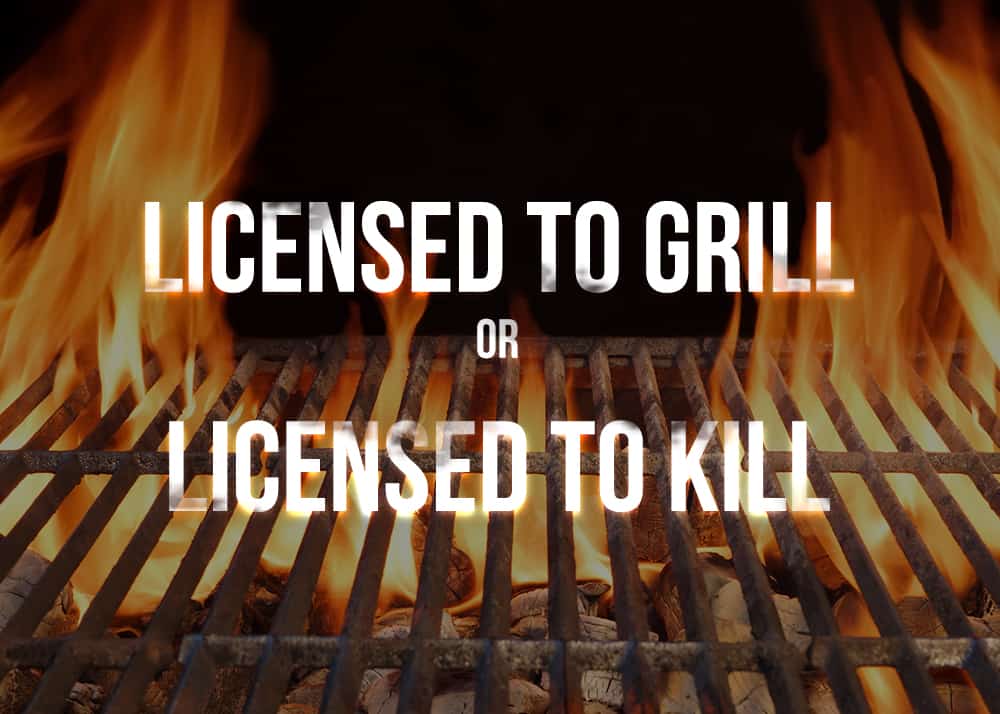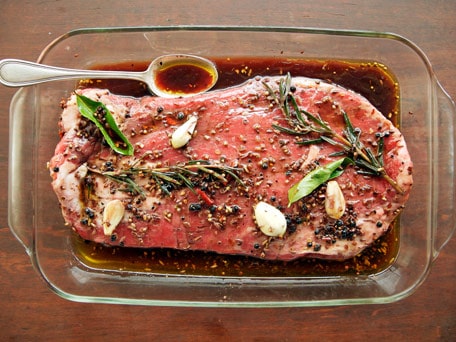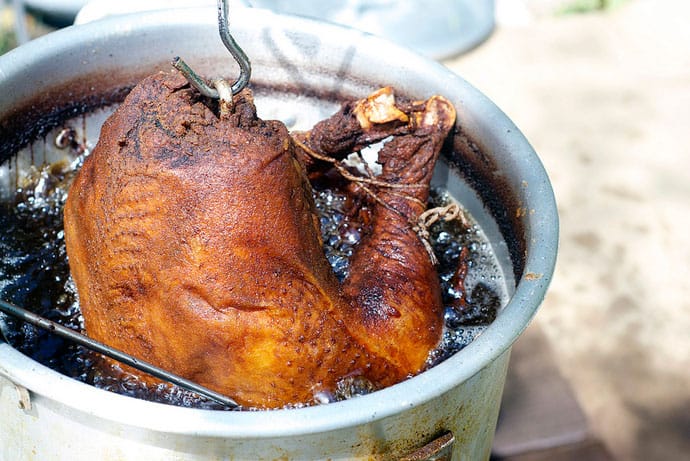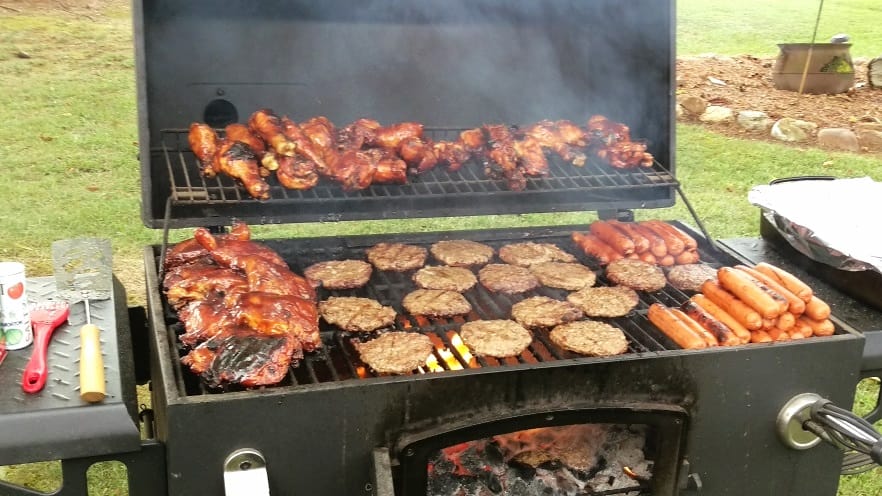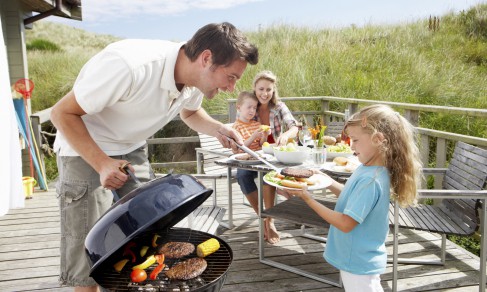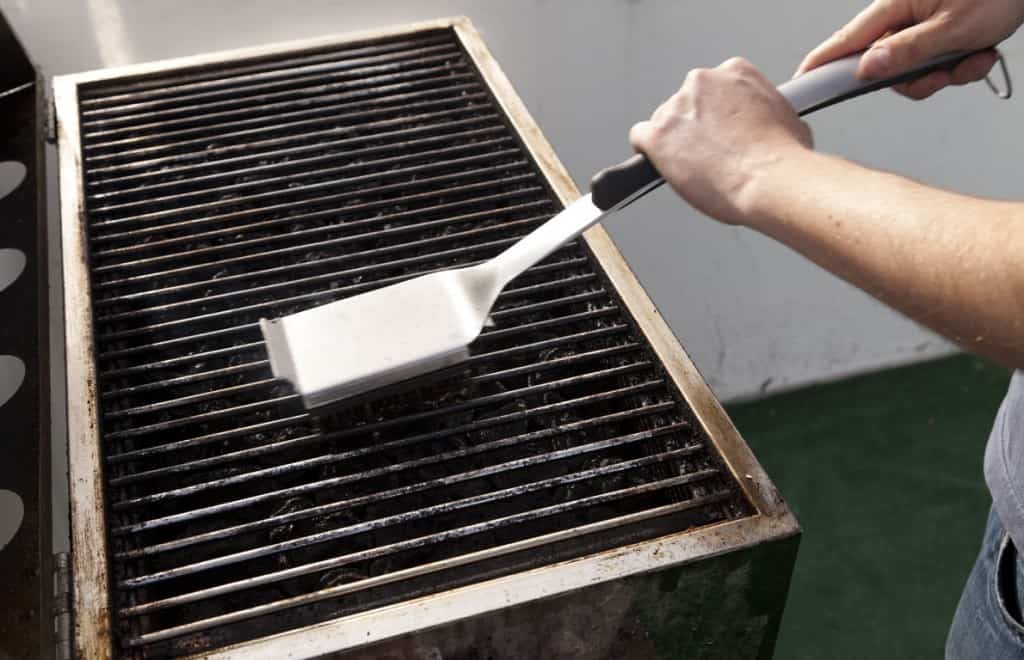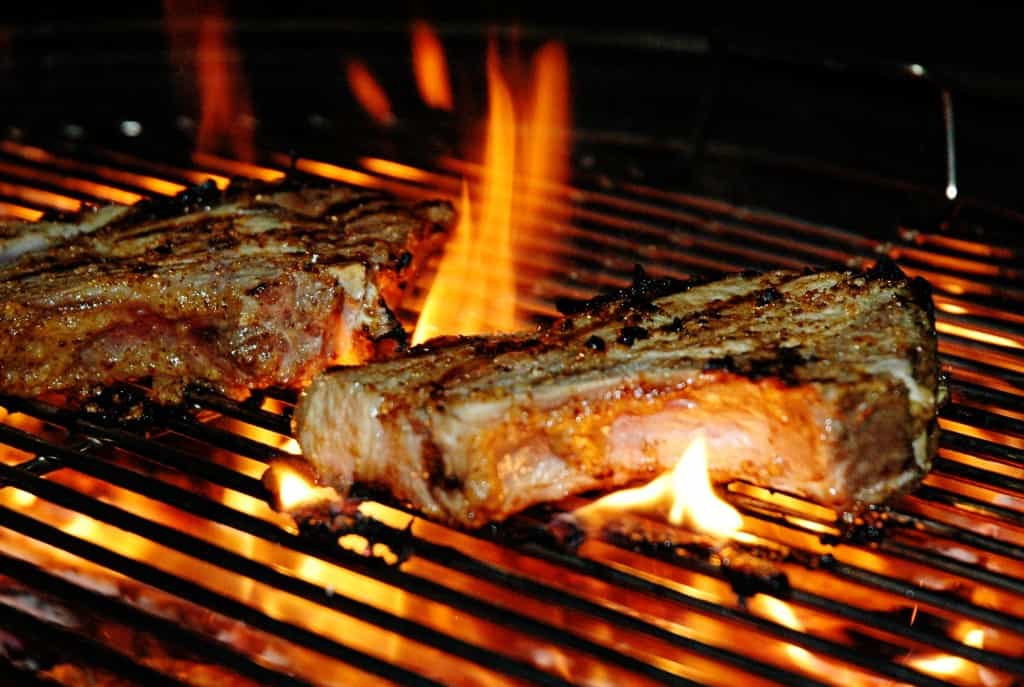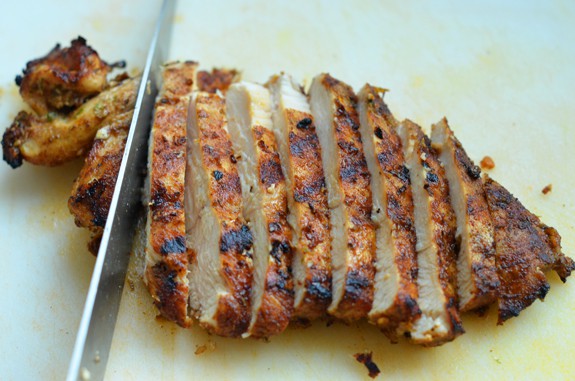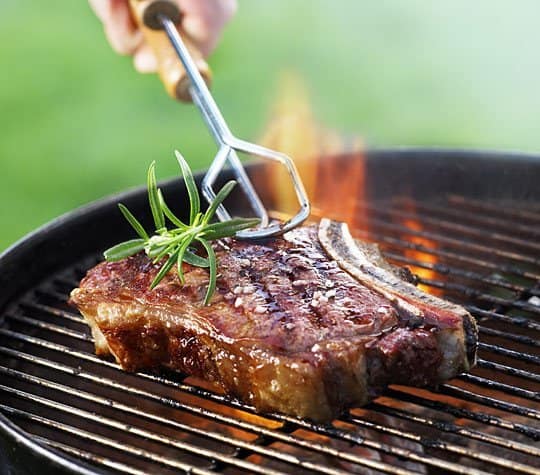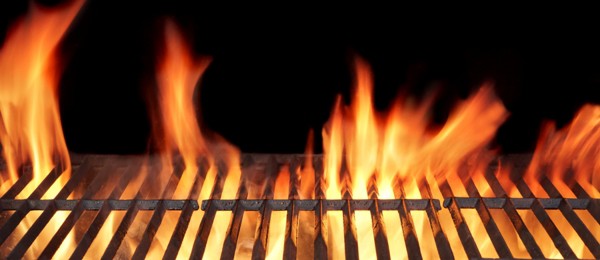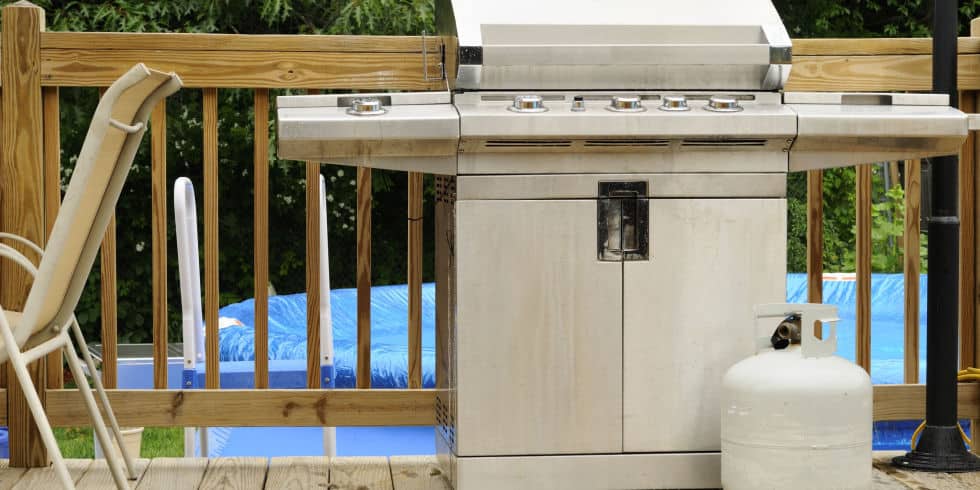When it comes to throwing a lunch or dinner with family and friends, you may spend all your time prepping the food you’re going to serve, the number of guests arriving, and the beverages you want to purchase. If you’re having a barbeque and grilling, though, it’s as easy as turning your head for a split-second to make an extreme mistake. And no, we’re not just talking about burning your burgers.
Each year, an average of 8,900 home fires are caused by grilling, and close to half of all injuries involving grills are due to thermal burns. Whilst nearly half of the people who grill do it year-round, July is the peak month for grill fires followed by May, June, and then August.
Kids, don’t make these mistakes at home when thinking about your upcoming BBQ.
1. Not Marinating Your Meat
Next time you break out your barbeque grill for a family cookout, be sure to take precaution — and we’re not just talking about failing to cook your food thoroughly. Whilst char marks in grilled meat may give your food a tasty flavour and make them look appealing, the char is actually laden with cancer-causing compounds called HCAs, or heterocyclic amines, which form when meat and high heat are combined to create a blackened crust. The more char created, the more carcinogens that result on your food.
High levels of HCAs have been shown to cause cancer in laboratory animals exposed to them, and epidemiological studies show that eating charred meats may be associated with an increased risk of pancreatic and prostate cancer.
2. Cooking With a Turkey Fryer
Many people swear by the moist, tasty goodness that comes from deep-frying a turkey in oil. But the dangers that come with gas-fueled turkey fryers, include severe burns from hot oil or even fire damage. If your turkey isn’t completely defrosted, you’re putting your seemingly delicious meal into a huge fire hazard and a ruined meal.
A turkey fryer can easily tip over, which can lead to hot cooking oil spilling all over a large area. An overfilled cooking pot or partially frozen turkey will cause cooking oil to spill when the turkey is inserted, and a small amount of cooking oil coming into contact with the burner can cause a large fire.
If you really crave a fried turkey for Thanksgiving, be sure to thaw the turkey fully, which is a recommended 24 hours for every five pounds. A partially frozen turkey can lead to fire or explosion. Always deep fry your turkey outside on a solid surface, away from any flammable materials. Be safe, wear goggles, and yes, even have a fire extinguisher nearby.
Want to see some EXTREME deep fried turkey fails? Have at ‘em: https://youtu.be/Z497ADm1xhE.
3. Cooking Your Food All Together (Yes, Even Meat)
Cheeseburgers, chicken, steak, veggie burgers, and vegetables. As long as the meat and veggies don’t touch (of course for purposes of our vegetarian friends), we’re good, right? Nope.
Two reasons not to cook chicken, burgers, and hot dogs at the same time: Not everything cooks at the same temperature and cross-contamination can make you very sick. Cook foods separately so that your hamburgers and chicken both turn out perfectly.
While your guests are around and chatting waiting for their main meal, serve snacks, such as cut-up vegetables and hummus, pita chips, and fresh fruits.
4. Grilling on the Deck
Make sure you keep your grill on a level surface a safe distance from your home (including your porch or deck) and away from any trees or overhanging branches. As a general rule, you should be five feet or more from anything that could catch fire.
Using a grill on a wooden deck can lead to unwanted fires, as sparks might ignite wood decking boards or railings. Windy conditions can increase the danger from stray sparks.
Some backyard decks that are located near trees, vines, branches, and leaves could easily catch on fire if they brushed against the grill, flames or the hot surface. Even if you keep your yard well-maintained, you can’t control when a falling leaf may land on or near the grill.
For optimal safety, concrete patios, far removed from trees and shrubbery, are well suited for grilling.
5. Failing to Give Your Grill a Thorough Cleaning
Failing to properly clean your grill after cooking is a huge negative and a huge fire causer. Grease is a leading cause of grill fires so make sure to clean your barbeque grill and tools after every use. Yes, even if you like the taste.
Burners can get very clogged, and gunk can build up so much that it causes small fires, and rust can also take over your grill. No matter what type of grill you have, routine post-use cleaning is the key to maintaining it. Clean grills work better, last longer, and won’t leave a bad taste on food (from excess smoke caused by buildup).This is especially true for cooking grates, which, if left dirty, can harbour bacteria that could contaminate food. Residue accumulates over time and settles into your grill grates, causing the sticking that can wear and tear your grill.
It is suggested you clean right after you’ve preheated the grill. To clean thoroughly, use a brass bristle brush to scrub off the ashy debris. If you don’t have a brush, use aluminum foil balled up and grasped with a pair of tongs. If drip pans are more than half full, replace them.
6. Leaving the Propane On Too Long
Keeping the lid open before you light the grill can be a huge prevention of fires and grill explosions. Turn on the grill, light it right away, and don’t wait and let it build up gas.
Another tip is the soapy water test: Spray all your hoses and connections with soapy water. If you see the soapy water bubbling, that means you have a gas leak there, “and you either need to tighten that up or you need to replace it if it can’t be tightened.
7. Forgetting to Trim the Fat in Your Food
Most flare-ups are actually caused by fat dripping onto the fire, which makes them easy to avoid. Be sure to carefully trim all excess fats from the outside of meats before putting them on the grill or opting for leaner cuts of ground beef when making burgers to prevent flare-ups.
Flames are of course inevitable when grilling, but when cooking fattier cuts or burgers made from ground meat of a higher fat content, be prepared with an area of indirect heat where you can move your foot to safety. You can kill a flare-up with a simple spritz of water, but be sure to be sparing, as anything more than a mist could cause ashes to float onto the food.
8. Failing to Use Long Tongs
Again, hello flare-ups. A good pair of long-handled tongs will be the hardest-working tool in your grilling endeavours, so invest in a pair that’s comfortable and sturdy. The long handles are key as grills can be deceptively hot, so you’ll want to keep a safe enough distance to not get burnt.
Short tongs leave your hands vulnerable to sudden flare-ups. Also, never use forks or utensils with sharp edges, as piercing meats allows flavourful juices to escape.
9. Not Having a Plan In Case of Fire
Once you have a flare-up going, you need to make sure you are able to take control of it. By moving meat that is dripping fat into the flare-up, you can keep the flare-up in one place.
When a flare-up starts, move the meat out of the way to say, a warming rack. Now drop the chicken pieces into the middle of the flare-up for a few seconds to let the grease on the chicken drain and burn away. Do this with all the pieces, then clear out of that area of the grill. Let it burn down whilst you keep the chicken either to another side or on the warming rack.
Worse comes to worst, remove food entirely from the grill, let the grease burn off and then resume grilling. If you can’t prevent it then you need to be able to control it.
10. Overfilling Your Propane Tank
Overfilling the propane tank of your grill is a serious risk. A very full propane tank can explode, causing damage and serious injury. The risk of overfilling is complicated by the fact that the liquid in the tank will expand in warmer weather as pressure in the tank increases. If the tank is too full, this has no place to go and could explode.
Taking care to ensure that the propane barbecue tank is full, but not over-filled, ensures a long life for the cylinder, and also preserves the safety of the griller.

